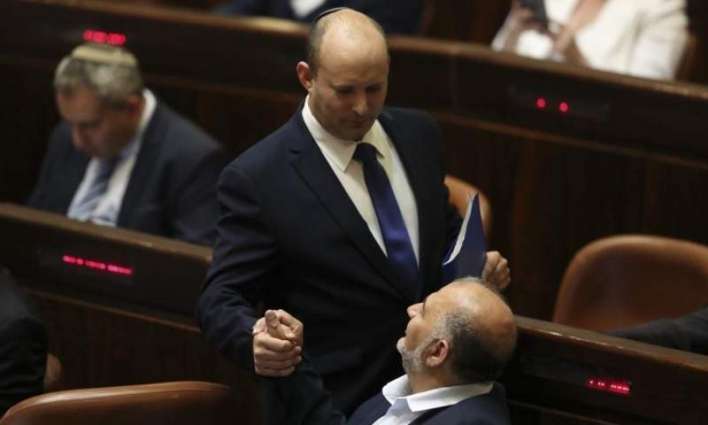Israel's most politically diverse government in the country's history demonstrated it is flexible enough to withstand a test by controversial initiatives, including a tree-planting project in the Negev desert where a large part of the Israeli Arab Bedouin population lives, Middle East experts told Sputnik
ST.PETERSBURG (Pakistan Point News / Sputnik - 17th January, 2022) Israel's most politically diverse government in the country's history demonstrated it is flexible enough to withstand a test by controversial initiatives, including a tree-planting project in the Negev desert where a large part of the Israeli Arab Bedouin population lives, middle East experts told Sputnik.
Mansour Abbas's Joint Arab List party, or Raam, whose electoral base includes Bedouins, threatened to withdraw support of the coalition in response to Israel's forestation work. The Bedouin community reacted to what they see as a land grab with rallies, some of which escalated to torched cars and blocked trains.
With a razor-thin one-seat majority in the 120-seat Knesset, the Israeli coalition government is reliant on the Arab party's backing. The government promised to start talks and seek a compromise after it finished planting trees.
"This is a storm in a teacup! It is a powerful storm, however. The problem of the Israeli government is that the teacup is transformed into a rather large reservoir, which contains eight different coalition partners with opposite views. It is clear that within this broad coalition any partner may decide to 'hog the covers'. Today, Mansur Abbas is the kingmaker. What we see is called a mobilization of discontented groups of the population for the purpose of exerting pressure on the government," Zeev Khanin, an Israeli expert at the Department of Political Studies in Bar-Ilan University Ramat-Gan, told Sputnik.
Khanin said it was unlikely that the "teacup will tip over" because the Israeli parliament has never voted a government out of office. "It has always been undermined from within," he added.
The government's makeup reflects deep divisions within the society. While government-sponsored tree planting set off violent protests by Bedouins, thousands of Israelis turned out for a right-wing demonstration outside Prime Minister Naftali Bennett's office in Jerusalem on Thursday to protest compromises with the Arab community.
Former Israeli lawmaker Ksenia Svetlova argued that the ongoing crisis had exposed the coalition's fragile standing and could have been a sign of the "beginning of the end" for the seven-month-old government.
"A real drama is unfolding in the Knesset: the coalition does not have a majority, and its members have left the plenary. Raam does not back the coalition due to problems in the Negev, Nir Orbach from Yamina left the Knesset in protest, saying he would not vote until Abbas changes its stance," she said.
Wael Karim, an expert on Israeli affairs at Tel Aviv University, agreed with Khanin that the Negev crisis was resolved in a timely manner and was unlikely to affect the coalition's future.
"I believe that the Negev situation is over... The Joint List announced that it will return to voting on different draft laws alongside the coalition starting next week. That is why I believe this storm is on the winding down and it will likely not have lasting impacts," Karim said.
Palestinians showed a great deal of support for the Bedouin community in the Negev desert, helping the Joint List to convince the Israeli government that this was not the time to take such arbitrary initiatives, Khanin said.
When asked to assess the coalition's progress in engaging the Arab population since the government was announced in June, Karim said that it had improved the general atmosphere.
"Some of the achievements are the electricity law or the budget distribution law or the citizenship law and so on, but there is also a change in the general atmosphere in the engagement with the Arabs and that is the more important matter that we can attribute to the Joint List Raam entering the government coalition," the pundit said.
Karim said he was convinced that the coalition government was unlikely to dissolve any time soon. He called its "fight against the common enemy," former prime minister Benjamin Netanyahu, a unifying factor.
"Government's constituent parties have one common enemy and that is Bibi Netanyahu. Everyone understands that if this government fell, Bibi Netanyahu is the main candidate to replace this cabinet. That would mean a return to the previous era and he would seek revenge against those that locked him out of power. That is why I believe that despite all the differences between the different parties in this coalition, common hate for Netanyahu is the factor that keeps the coalition together," he explained.
As of today, the big question is whether Netanyahu will be required to quit the parliament as he and his lawyers consider a plea bargain in the court trial. He is accused of having abused government powers to manipulate media coverage and taken expensive gifts from billionaire friends.




